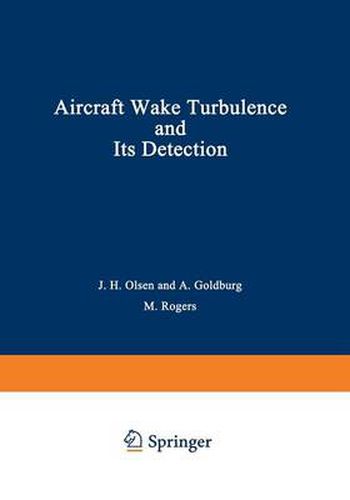Readings Newsletter
Become a Readings Member to make your shopping experience even easier.
Sign in or sign up for free!
You’re not far away from qualifying for FREE standard shipping within Australia
You’ve qualified for FREE standard shipping within Australia
The cart is loading…






This title is printed to order. This book may have been self-published. If so, we cannot guarantee the quality of the content. In the main most books will have gone through the editing process however some may not. We therefore suggest that you be aware of this before ordering this book. If in doubt check either the author or publisher’s details as we are unable to accept any returns unless they are faulty. Please contact us if you have any questions.
The combination of increasing airport congestion and the ad vent of large transports has caused increased interest in aircraft wake turbulence. A quantitative understanding of the interaction between an aircraft and the vortex wake of a preceding aircraft is necessary for planning future high density air traffic patterns and control systems. The nature of the interaction depends on both the characteristics of the following aircraft and the characteristics of the wake. Some of the questions to be answered are: What deter mines the full characteristics of the vortex wake? What properties of the following aircraft are important? What is the role of pilot response? How are the wake characteristics related to the genera ting aircraft parameters? How does the wake disintegrate and where? Many of these questions were addressed at this first Aircraft Wake Turbulence Symposium sponsored by the Air Force Office of Sci entific Research and The Boeing Company. Workers engaged in aero dynamic research, airport operations, and instrument development came from several count ries to present their results and exchange information. The new results from the meeting provide a current picture of the state of the knowledge on vortex wakes and their interactions with other aircraft. Phenomena previously regarded as mere curiosities have emerged as important tools for understanding or controlling vortex wakes. The new types of instability occurring within the wake may one day be used for promoting early dis integration of the hazardous twin vortex structure.
$9.00 standard shipping within Australia
FREE standard shipping within Australia for orders over $100.00
Express & International shipping calculated at checkout
This title is printed to order. This book may have been self-published. If so, we cannot guarantee the quality of the content. In the main most books will have gone through the editing process however some may not. We therefore suggest that you be aware of this before ordering this book. If in doubt check either the author or publisher’s details as we are unable to accept any returns unless they are faulty. Please contact us if you have any questions.
The combination of increasing airport congestion and the ad vent of large transports has caused increased interest in aircraft wake turbulence. A quantitative understanding of the interaction between an aircraft and the vortex wake of a preceding aircraft is necessary for planning future high density air traffic patterns and control systems. The nature of the interaction depends on both the characteristics of the following aircraft and the characteristics of the wake. Some of the questions to be answered are: What deter mines the full characteristics of the vortex wake? What properties of the following aircraft are important? What is the role of pilot response? How are the wake characteristics related to the genera ting aircraft parameters? How does the wake disintegrate and where? Many of these questions were addressed at this first Aircraft Wake Turbulence Symposium sponsored by the Air Force Office of Sci entific Research and The Boeing Company. Workers engaged in aero dynamic research, airport operations, and instrument development came from several count ries to present their results and exchange information. The new results from the meeting provide a current picture of the state of the knowledge on vortex wakes and their interactions with other aircraft. Phenomena previously regarded as mere curiosities have emerged as important tools for understanding or controlling vortex wakes. The new types of instability occurring within the wake may one day be used for promoting early dis integration of the hazardous twin vortex structure.